Filter by
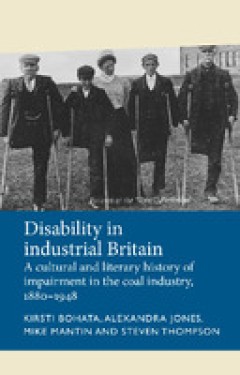
Disability in industrial Britain : a cultural and literary history of impairm…
Coalmining was a notoriously dangerous industry and many of its workers experienced injury and disease. However, the experiences of the many disabled people within Britain’s most dangerous industry have gone largely unrecognised by historians. This book examines the British coal industry through the lens of disability, using an interdisciplinary approach to examine the lives of disabled miner…
- Edition
- -
- ISBN/ISSN
- 9781526124326
- Collation
- 277 p. : ill.
- Series Title
- -
- Call Number
- 362 BOH d
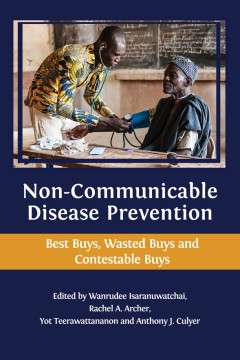
Non-communicable disease prevention: best buys, wasted buys and contestable buys
Non-communicable diseases (NCDs) are the leading cause of death worldwide, contributing to over 73% of all deaths annually. Each day NCDs cause more than 100,000 deaths, 80% of which occur in low- and middle-income countries. NCDs, however, are largely preventable, and a great deal of technical knowledge exists about how to prevent and manage them. Why, then, have we, as a global community, not…
- Edition
- -
- ISBN/ISSN
- 9781783748655
- Collation
- xxix, 181 p. : ill. : ind. ; 24 cm
- Series Title
- -
- Call Number
- 362.1 NON n
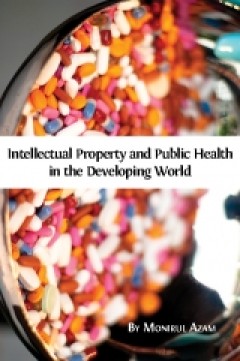
Intellectual property and public health in the developing world
Across the world, developing countries are attempting to balance the international standards of intellectual property concerning pharmaceutical patents against the urgent need for accessible and affordable medicines. In this timely and necessary book, Monirul Azam examines the attempts of several developing countries to walk this fine line. He evaluates the experiences of Brazil, China, India, …
- Edition
- -
- ISBN/ISSN
- 9781783742301
- Collation
- xxiiii, 348 p. : ill.
- Series Title
- -
- Call Number
- 615.1091724 AZA i
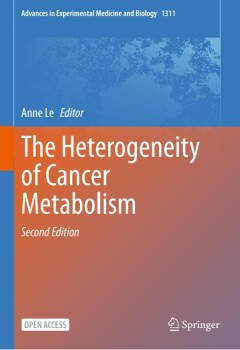
The heterogeneity of cancer metabolism
This open access volume will introduce recent discoveries in the field of cancer metabolism since the publication of the first edition in 2018, providing readers with an up-to-date understanding of developments in the field. Genetic alterations in cancer, in addition to being the fundamental drivers of tumorigenesis, can give rise to a variety of metabolic adaptations that allow cancer cells…
- Edition
- -
- ISBN/ISSN
- 9783030657680
- Collation
- xxiii, 271p. : ill.
- Series Title
- -
- Call Number
- 616.99407 HET h
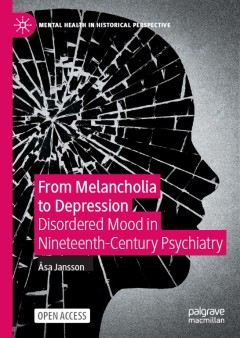
From melancholia to depression : disordered mood in nineteenth-century psychi…
This open access book maps a crucial but neglected chapter in the history of psychiatry: how was melancholia transformed in the nineteenth century from traditional melancholy madness into a modern biomedical mood disorder, paving the way for the emergence of clinical depression as a psychiatric illness in the twentieth century? At a time when the prevalence of mood disorders and antidepressant …
- Edition
- -
- ISBN/ISSN
- 9783030548025
- Collation
- xv, 234p. : ill.
- Series Title
- -
- Call Number
- 616.8527009034 JAN f
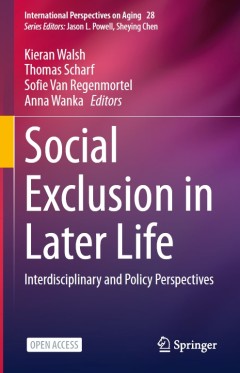
Social exclusion in later life : interdisciplinary and policy perspectives
Drawing on interdisciplinary, cross-national perspectives, this open access book contributes to the development of a coherent scientific discourse on social exclusion of older people. The book considers five domains of exclusion (services; economic; social relations; civic and socio-cultural; and community and spatial domains), with three chapters dedicated to analysing different dimensions of …
- Edition
- -
- ISBN/ISSN
- 9783030514068
- Collation
- xxix, 450p. : ill.
- Series Title
- -
- Call Number
- 302.545 SOC s
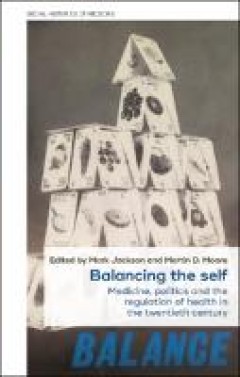
Balancing the self: Medicine, politics and the regulation of health in the tw…
Concepts of ‘balance’ have been central to modern politics, medicine and society. Yet, while many health, environmental and social challenges are discussed globally in terms of imbalances in biological, social and ecological systems, strategies for addressing modern excesses and deficiencies have focused almost exclusively on the agency of the individual. Balancing the Self explores the div…
- Edition
- -
- ISBN/ISSN
- 9781526132123
- Collation
- xvi, 348p.: ill.
- Series Title
- -
- Call Number
- 362.19646200941 BAL b
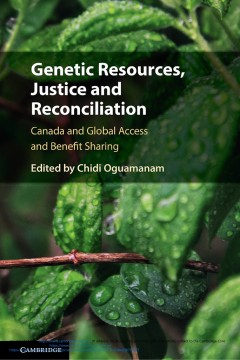
Genetic resources, justice and reconciliation : Canada and global access and …
When the oral history of a medicinal plant as a genetic resource is used to develop a blockbuster drug, how is the contribution of indigenous peoples recognized in research and commercialization? What other ethical, legal, and policy issues come into play? Is it accurate for countries to self-identify as users or providers of genetic resources? This edited collection, which focuses on Canada, i…
- Edition
- -
- ISBN/ISSN
- 9781108557122
- Collation
- xix, 279p. : ill.
- Series Title
- -
- Call Number
- 346.710469534 GEN g
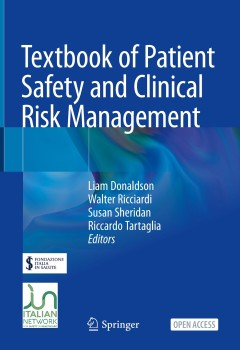
Textbook of patient safety and clinical risk management
Implementing safety practices in healthcare saves lives and improves the quality of care: it is therefore vital to apply good clinical practices, such as the WHO surgical checklist, to adopt the most appropriate measures for the prevention of assistance-related risks, and to identify the potential ones using tools such as reporting & learning systems. The culture of safety in the care enviro…
- Edition
- -
- ISBN/ISSN
- 9783030594039
- Collation
- xiii, 496p. : ill.
- Series Title
- -
- Call Number
- 616 TEX t
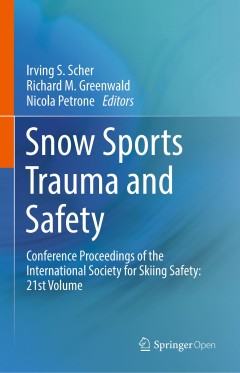
Snow sports trauma and safety : conference proceedings of the International S…
This book covers the latest in snow sport epidemiology, snow sport injuries and treatment, and biomechanical/mechanical engineering related to snow sports injuries (mechanisms of injury, injury prevention by equipment design, injury prevention by design of resort features, and more). It brings together a collection of papers from the International Congress on Ski Trauma and Safety (the biennal …
- Edition
- -
- ISBN/ISSN
- 9783319527550
- Collation
- x, 206p. : ill.
- Series Title
- -
- Call Number
- 617.1027693 SCH s
 Computer Science, Information & General Works
Computer Science, Information & General Works  Philosophy & Psychology
Philosophy & Psychology  Religion
Religion  Social Sciences
Social Sciences  Language
Language  Pure Science
Pure Science  Applied Sciences
Applied Sciences  Art & Recreation
Art & Recreation  Literature
Literature  History & Geography
History & Geography